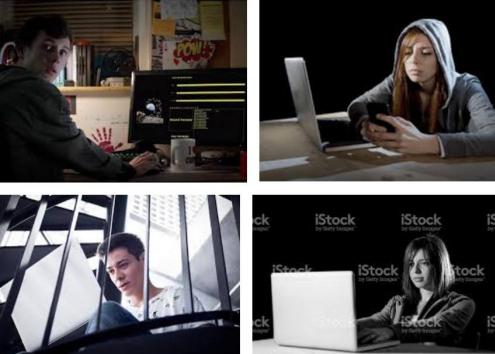Misleading advice in Europol's cybercrime page
Europol is the EU’s law enforcement agency, whose main goal is “to achieve a safer Europe for the benefit of all the EU citizens”. The Europol page about public awareness and prevention mixes good advice with a few… misleading bits of information.

To begin with, that page still defines hacking only as something that (*):
“involves gaining access to someone’s computer network without their permission and then taking control, and/or taking information from an organisation, agency or individual."
But, as I pointed out 10 years ago, hacker and hacking have many more positive than negative meanings, and it has been so for decades. If your kids became hackers as in “followers of that tradition” you should be happy, not worried.
The most misleading part, however, is in the lists of “Warning signs that your child may be at risk of becoming involved in cybercrime:
- They spend most of their time online and are often secretive about their activities;
- They are excessively interested in coding;
- They seem to gain an additional income from their online activities, but they do not talk about how they do it;
- Your home network’s monthly data allowance is often met;
- They socialize more in the online world than offline
But signs 3, 5 and maybe even 1 (at least the “secretive” part) are much more likely to be, before anything else, signs that you’ve been doing something wrong as a parent. Regardless of if, and how much, “your child may be at risk of becoming involved in cybercrime”.
(*) to be fair, the same page also states that “Many children will have an active interest in coding and programming, spend a lot of time online and have independent learning materials. These are all signs of a healthy and positive interest in computing and the development of those extremely valuable skills should be encouraged – but in a lawful way.”
Who writes this, why, and how to help
I am Marco Fioretti, tech writer and aspiring polymath doing human-digital research and popularization.
I do it because YOUR civil rights and the quality of YOUR life depend every year more on how software is used AROUND you.
To this end, I have already shared more than a million words on this blog, without any paywall or user tracking, and am sharing the next million through a newsletter, also without any paywall.
The more direct support I get, the more I can continue to inform for free parents, teachers, decision makers, and everybody else who should know more stuff like this. You can support me with paid subscriptions to my newsletter, donations via PayPal (mfioretti@nexaima.net) or LiberaPay, or in any of the other ways listed here.THANKS for your support!